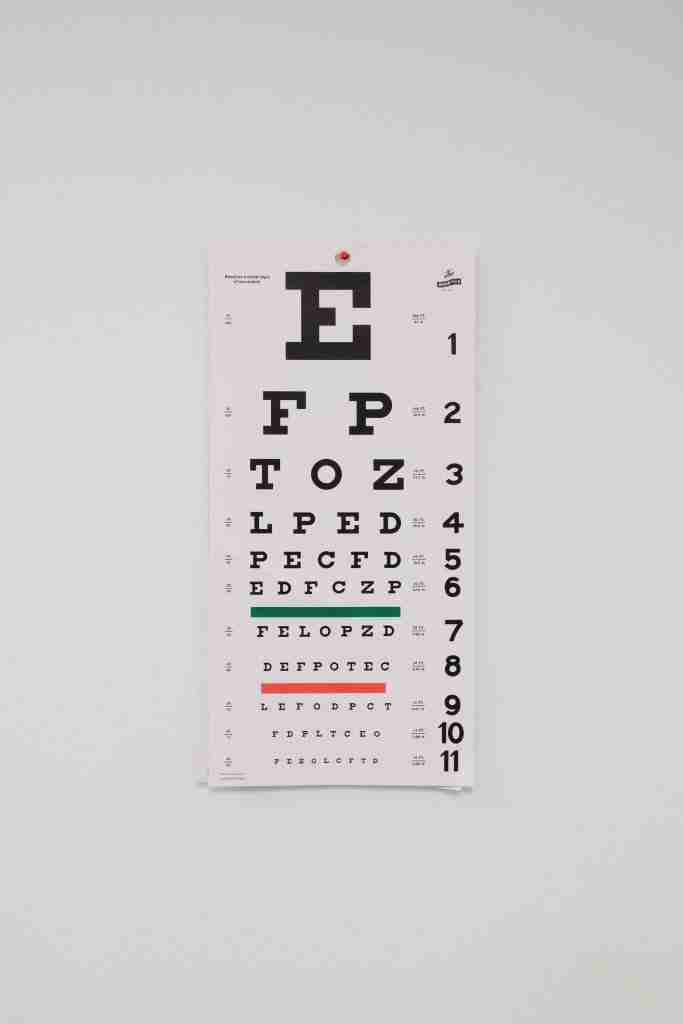Financial planning for 40 year olds. 7 things to do right now to get you on the right track.
Financial planning for 40 year olds is all about putting a few specific things in place and then following a straight forward process to build and keep wealth.
So you have reached your 40s and now (finally) feels like the right time to start thinking about your money.
OR
You have realised SH!T I don’t have any money and if I am NOT GOING TO WORK FOREVER, I need to get my act together now in my 40s and not later in my 50s.
If you want to figure out how to start financial planning in your 40s then read on for a few key actions.

1.Right down your goals
Yes, write them down with an actual pen and paper. Very 80’s, I know. It’s the beginnings of a life plan.
Make them real by writing them down and saying them out loud. This is hopefully going to help you think through your goals.
Even better if on hearing your goals you think, Nah I don’t really want that because you have just saved yourself a lot of hassle and money on something you don’t want.
With a few goals written out, you can start to see where you want to head towards what it’s going to cost in time and money and the current gap.
Having written goals is hopefully going to prevent the drift of life.
Ever woken up and thought I can’t remember what I did last, week, month or year. OK, some of that is because you are in your 40s, but the other part might be because you didn’t really do that much (except for 2020, when not many of us did much that year).
Here are a few areas where you might have goals or things to aim for.
- Health and fitness (six-pack abbs?)
- Recreation and hobbies (that puzzle isn’t going to make itself)
- Family and Friends (OK the kids can come to Disney land also)
- Romance and Relationships (this year they will be mine!)
- Finance and net worth (this time next year we will be millionaires)
- Career and business (is this year to launch your side hustle?)
- Personal development (Ukulele fireside sing-alongs?)
- Spiritual goals (is it time for that silent retreat?)
Oh yeah and another thing, when do you want these things to happen?
Within all these potential ideas written down hopefully, a picture of your ideal lifestyle is emerging (?)

Don’t forget the big-ticket items
Lets not forget any planned or potential Big life events that might happen along the way. Get them on the list and what they might cost.
- Weddings & divorce parties
- Kids (financial dream crushers)
- Houses
- The new business
- The around the world trip
- Making work optional one day! If that’s of interest?
Right, now you have a plan get to work on it. Let me know if you would like any help!
2. Put together an emergency fund
2020 has taught us that sometimes things go wrong more or less everywhere for everyone at once.
Profitable businesses go wrong; managers change, houses and cars can need repairs. All of these would be a lot easier to deal with if we had an emergency fund.
This is a stash of cash to ride out short to medium term challenges to prevent you from going into debt or financial crisis to deal with them.
Its common for this figure to be seen as 3-6 months living costs. Whether you feel more or less would be better is a personal choice considering attitude to risk and how stable you think your income is given multiple scenarios.
If you have savings, investments, and multiple income sources, then maybe less would be OK, but better be prepared than sorry.

3. Deal with your debt
Now that you are a big kid at 40, you probably have some debt.
You can have a range of types of debt, basically good and bad.
It might be called “good” debt if held against something that is an appreciating asset like a property, your education or a business.
In theory, these could help you increase your wealth over time. Providing you keep the debt manageable and have a plan to deal with it once and for all.
The “bad” debt is money borrowed against things that are or have already lost their value and continue to do so.
That brand new car lost 20% of its value the second you drove it away. Those clothes, TVs, shoes, basically the stuff you buy will never reach its asking price again that you borrowed money to buy.
This is bad debt as the stuff you bought is going down in value while the debt and payments you are making for it are going up.
Get a list of all your debts and see where you think they sit in the good or bad category.
Until you get your debt under control, it will keep dragging you back. You won’t be able to create wealth with a lot of debt.
Put a plan together to get your debt under control and don’t take on any more.
If you are in debt crisis
Here are a few good sources of help:
4. Start investing in your 40s
If you are going to build real wealth, it’s unlikely to come from just saving cash. Financial planning for 40 year olds will likely see you need to understand and start investing.
Your cash savings are being eroded by inflation all the time. Much faster than you are earning interest on your savings.
Remember in your 20s what your £ $ € would buy and what it does now? Imagine this in another 20/40/60 years – yep that’s it cash savings are unlikely to make work optional any time soon.
Investing in the world’s great companies over the long term has a much better chance of maintaining your wealth and purchasing power into the future. This is because investment in the world’s great companies has a better chance of beating inflation over the long term.
Investing is a lot about your financial literacy, habits and actions. The more you know about each, the better investor you will be.
Investing has the potential to capture the power of human ingenuity across the world to grow your wealth to a point where work will become optional.
A few concepts and ideas will help you with your investing journey.
- Keep your costs low – it’s your money
- Take advantage of tax-efficient vehicles like pensions or ISA’s
- Understand the difference between short term declines and long-term growth.
- Understand what compound interest is and how with time it will work for you – interest on your interest, on your interest.
- Diversification – don’t put all your eggs in one company, sector or country.
If you would like to know more about investing at 40 lets chat
5. Protect yourself from disaster
So bad things happen.
“Yeah, I know that” I hear you say “I lived through 2020.”
Now you can’t stop all bad things from happening, but you can try and dampen the effects on yourself and any loved ones.
The proverbial bus could run you down any day now. How would you or your loved ones cope financially if it did and killed or badly injured?
If you die, how will your loved ones survive without your income? They may have lost of few years or decades of your expected income.
That sort of loss might be exceedingly difficult to cope with.
If you or a partner were severely injured and could work for a period or forever, how would you/they cope with caring for you with the loss of an income?
Considering some protection might be a good idea if anyone is badly affected by your passing and/or loss of income.
It might be that some of these insurances are provided through your employer, you just need to check are they providing enough for your particular circumstances.
The types of protection/insurance you might want to consider.
- Income protection if you can’t work anymore.
- Life insurance if you die
- Critical illness in case you are diagnosed with a serious illness.
Having an emergency fund might well take away some of your money worries.
6. Plan for retirement or making work optional one day.
Yeah, your 40 so you’re likely starting to think about retirement, whatever retirement means to you. In fact, financial planning for 40 year olds is really going to need to look at what your current retirement might look like and what you need to do to make it better asap.
It could be endless cruises, part-time work or a new career. Whatever it is it’s likely to involve some sort of pivot from what you are currently doing.
Even if you “say” you never want to retire you are at some point likely to want to do whatever it is you never want to stop doing and do it differently!
Pensions are your future spending power. Its stored money or emergency for you to use when you don’t have an income anymore or a much-reduced one.
You can try and live off only a state pension if you like. That’s about £9000 in the UK a year if you qualify for the full amount. Does that sound like a comfortable lifestyle for you?
If it doesn’t, taking more interest in your workplace or personal pensions might be a good idea.
As you get older, your needs and desires are likely to change
You might well have a few highly active years. NO work and no kids around you are free to do all the things you previously could.
Then you might have a few slower years when jet-setting about is no longer a realistic option.
And then you will have the slow years when you can’t or don’t want to do that much.
These phases require a little thinking and planning for what they might cost.
7. Create more streams of income.
If you only have one source of income-you might be a little more vulnerable than you think.
Now might be an excellent time to create a side hustle—a small project to start building another income source.
This could be using your experience, skills or interests to try and earn more income.
Could you create things that people want to have or learn about?
Is there a problem you have solved that lost of people are looking for the answer to?
Have you spotted a service that no one else is providing or that you could do better?
These are all potential ways that you could create some additional income and grow over time.
| Step | Description |
|---|---|
| 1. Write Down Your Goals | List your financial goals, including big-ticket items like buying a home or funding your child’s education. |
| 2. Put Together an Emergency Fund | Save 3-6 months’ worth of living expenses in an easily accessible account for unexpected expenses. |
| 3. Deal with Your Debt | Focus on paying down high-interest debts and consider consolidating loans to manage them effectively. |
| 4. Start Investing in Your 40s | Begin or increase investments in stocks, bonds, or real estate to grow your wealth. |
| 5. Protect Yourself from Disaster | Ensure you have adequate insurance coverage (life, health, property) to protect against unforeseen events. |
| 6. Plan for Retirement | Increase contributions to retirement accounts and consider speaking with a financial advisor to plan for retirement. |
| 7. Create More Streams of Income | Look for additional income opportunities such as side gigs, freelance work, or starting a small business. |
The cost of inaction
What happens if you don’t do the above?
I think you may already know that! Without financial planning taking place in your 40’s or any other age your finances now and in the future may not see you living happily ever after.
More pain, confusion, and never-ending work because you have nothing to live off without your job.
The longer the drift goes on, the more expensive, painful and risking a course correction becomes.
Why not start getting your finances in shape now?
FAQ: Building wealth in your 40s
How to become rich in your 40s?
There is no definitive answer to this question. However, there are a few basic things that you can do to increase your chances of becoming rich in your 40s.
One important thing to remember is that wealth accumulation is a marathon, not a sprint. It takes time and patience to amass a fortune. Therefore, starting saving and investing early in your career is important. The more time you have to let compound interest work its magic, the better off you’ll be.
Another key to becoming rich in your 40s is to live below your means. If you can control your spending and avoid lifestyle inflation, you’ll be in a much better position to save a larger percentage of your income. This will give you a bigger nest egg to invest in and compound over time.
Last but not least, it’s essential to have a diversified investment portfolio. This means investing in asset classes such as stocks, real estate and businesses, including your own.
How to start saving money at 40
There are a few key things to do to start saving money at 40. The first is to create a budget and stick to it.
Make sure you identify where your money goes each month and see where you can cut back.
Another important step is to start investing in your future. Investing for retirement may seem daunting, but plenty of options are available, and the sooner you start, the better off you’ll be.
Finally, take advantage of any employer matching contributions from retirement savings plans. This will help boost your savings even more!
How to start financial planning at 40
Financial planning in your 40s can be daunting, but starting now is important to secure your financial future. Here are a few tips to get started
1. Review your current financial situation. This includes taking stock of your income, debts, and expenses. This will give you a good starting point for building your financial plan.
2. Determine your short- and long-term financial goals. What do you want to achieve in the next 5 years? 10 years? 20 years? Your goals will help guide your choices regarding saving and investing.
3. Build an emergency fund. This should be one of your top priorities, as it will protect you financially if you experience a job loss or unexpected expenses. Aim to save 3-6 months of living expenses.
4. Invest for the future. Once you have an emergency fund, you can start investing for your long-term goals. This can include investing in easy access and retirement accounts.
5. Review your insurance coverage. Make sure you have the appropriate life, health, and disability insurance.
6. Create a budget. This will help you keep track of your spending and make informed decisions about where to allocate your money.
7. Make a debt repayment plan. If you have any high-interest debt, such as credit card debt, it’s important to create a plan for paying it off. This will help you save money in the long run.
8. Save for retirement. It’s never too early to start saving for retirement. The sooner you start, the more time your money has to grow.
9. Live below your means. One of the best things you can do for your financial future is to live below your means. This will help you save money and reduce your debt.
10. Stay informed. Keep up with changes in the financial world to make the best decisions for your situation.
Making smart financial choices in your 40s will set you up for a successful retirement. By following these tips, you can take control of your finances and secure your future.
Is 40 too late to build wealth?
No, 40 is not too late to build wealth. While starting earlier can provide more time for investments to grow, individuals in their 40s can still make significant financial strides by making smart investment choices, reducing debts, and creating additional income streams. Being disciplined, focused, and strategic in financial planning and investment can lead to wealth accumulation even if started at 40.
Is 40 too late to start saving for retirement?
No, 40 is not too late to start saving for retirement. While starting earlier is generally better, beginning at 40 still gives you time to make contributions and benefit from compound interest. It’s important to be strategic and possibly save at a higher rate to catch up.
How much should a 40 year old have saved?
The amount a 40-year-old should have saved depends on various factors including income, expenses, financial goals, and retirement plans. However, here are some general guidelines:
Rule of Thumb: A common rule of thumb is that by age 40, you should have a net worth equivalent to about three times your annual salary.
Retirement Savings: For retirement savings specifically, some financial experts suggest having at least three times your annual salary saved in retirement accounts by age 40.
Emergency Fund: It’s also recommended to have an emergency fund equivalent to 3-6 months of living expenses.
Personal Goals: Personal financial goals such as buying a home, funding education for children, or planning for early retirement can also influence how much one should have saved by 40.
Where you should be financially at 40?
At 40, you are likely at the midpoint of your career, and it’s a critical time for financial planning. Here’s where you should ideally be financially:
Emergency Savings: Have an emergency fund with at least 3-6 months’ worth of living expenses.
Retirement Savings: Have at least three times your annual salary saved for retirement. Be actively contributing to retirement accounts.
Debt Management: Have a handle on your debt, especially high-interest debt like credit cards. Be working towards paying off student loans and making regular mortgage payments if you have them.
Investments: Have investments in place, such as stocks, bonds, or real estate, that can grow over time.
Insurance: Have adequate insurance coverage including health, life, and property insurance to protect yourself and your family.
Financial Goals: Have clear financial goals and a plan in place to achieve them. This might include saving for your children’s education, planning for a big purchase, or setting aside money for travel.
Budgeting and Spending: Have a budget that you stick to, and be conscious of your spending habits. Ensure that you are living within your means and not overspending.
Estate Planning: Begin thinking about estate planning. This includes having a will in place and considering how you want your assets to be distributed in the event of your death.
Financial Knowledge: Be knowledgeable about personal finance and stay informed about changes that could affect your financial situation.
Work-Life Balance: While finances are important, it’s also crucial to find a balance that allows for personal fulfillment and happiness.
Is it too late to start investing at 40?
No, it is not too late to start investing at 40. While starting earlier can provide more time for investments to grow, beginning at 40 still offers ample opportunity for wealth accumulation. Here are a few points to consider:
Compound Interest: Even at 40, you can still take advantage of compound interest, especially if you plan to work for another 20-25 years or more.
Aggressive Saving: You may need to save and invest more aggressively than someone who started earlier, but this can still be an effective way to build a substantial investment portfolio.
Diversified Investments: Focus on creating a diversified investment portfolio that balances risk and reward, and consider including assets that can generate passive income.
Retirement Accounts: Maximize contributions to retirement accounts, and take advantage of any employer-matching programs.
Financial planner or coach: Consult a financial planner or coach to develop a tailored investment strategy that aligns with your financial goals and risk tolerance.
Continuous Learning: Educate yourself on investment options and stay informed about market trends.
Summary: Financial planning for 40 year olds. 7 things to do right now to get you on the right track.
So there we have it your in your 40s and now is a great time to sort out your money. In fact, it’s going to be a lot cheaper and easier to do it now than waiting for your 50s or even later.
Here’s a summary of what actions you can take to start financial planning in your 40s.
- Right down your goals. Begin a plan for what you want your money to do for you now and in the future.
- Build an emergency fund – this will help you ride out most crises and hopefully prevent disaster.
- Deal with debt – figure out what you will do with the treacle holding back your wealth.
- Start investing – become a part owner in the world’s great companies and a share in their profits over the long term.
- Protect yourself from disaster – a few insurances in pace can help prevent it all ending in tears for those left behind.
- Plan for retirement – accept it’s going to happen and plan for what you would like it to look like.
- Create more sources of income – this will help you be less reliant on a day job.
Need a Helping Hand with Your Finances? 🤝💰
If you’ve made it this far, congratulations! You’re already taking steps towards a healthier financial future. But maybe you’re feeling a bit overwhelmed. Maybe the thought of budgeting, saving, and investing still makes you break out in a cold sweat. Don’t worry, you’re not alone, and help is available.
At Financially Happy Money Coaching, I understand that money isn’t just about numbers. It’s about emotions, behaviours, and life choices. That’s why we’re here to help you take the stress out of money and build wealth in a way that aligns with your values and lifestyle.
Whether you’re just starting out on your financial journey or you’re looking to take your finances to the next level, we’re here to guide you every step of the way. I’ll help you understand your financial behaviours, set realistic goals, and create a personalized plan to achieve those goals.
So, why wait? Start your journey towards financial happiness today. Remember, the best time to start was yesterday. The second best time is now.
Click here to schedule your consultation and let’s make your money work for you, not vice versa. 💪💰
Remember, financial freedom isn’t a destination; it’s a journey. And every journey is easier when you have a guide. So, let’s embark on this journey together and create a financially happy future. 🚀💸






